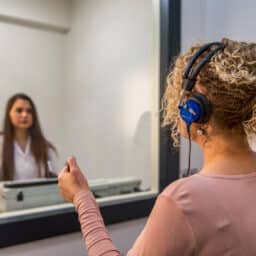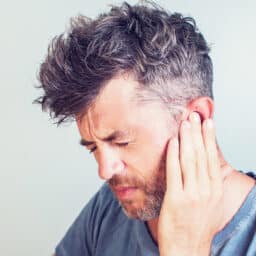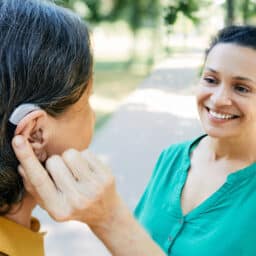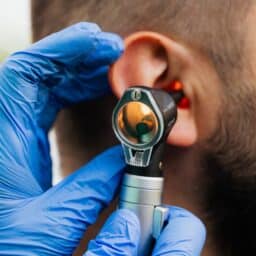What To Know About Diplacusis, or Double Hearing

You’ve probably heard of double vision before, but what about double hearing? This phenomenon, also known as diplacusis, occurs when the same sound is perceived differently in each ear. It can be disturbing and distracting for anyone who experiences it. Let’s look more closely at why double hearing occurs, as well as what can be…
It’s Important To Seek Treatment for Sudden Hearing Loss Quickly

Hearing loss comes on gradually for most people who experience it. However, if you experience sudden hearing loss, it’s important to seek treatment right away. What Is Sudden Hearing Loss? Much like the name suggests, sudden sensorineural hearing loss (SSHL) is hearing loss that comes on rapidly. It can occur all at once or over…
What to Know About Your First Hearing Aid

The National Institute on Deafness and Other Communication Disorders reports, “About 28.8 million U.S. adults could benefit from using hearing aids.” But despite this high number, only about one in five people who could benefit from hearing aids actually wears them, according to the Hearing Loss Association of America. If you’re ready to make the…
What Is Sudden, Brief, Unilateral, Tapering Tinnitus?

Tinnitus is a ringing, roaring, hissing, whistling, buzzing, humming or another sound in the ear with no external sound source. Some people experience sudden, brief tinnitus symptoms in one ear that seem loud at first, but then taper off within minutes or seconds. This may happen when gardening in your yard or working out at…
What To Know About Sleeping With Earplugs

Getting quality sleep every night is essential to every aspect of your health. If you are a light sleeper finding yourself struggling to catch some z’s, you may be wondering if sleeping with earplugs is right for you. The Health Risks of Poor Sleep When it comes to sleep, quality is just as important as…
The Do’s and Don’ts of Living With Tinnitus

Research estimates that 10% of the U.S. adult population has experienced tinnitus lasting at least five minutes within the last year. Tinnitus is often described as a ringing in the ear, though some experience buzzing, clicking, roaring or other sounds as well. Whether you are experiencing tinnitus or want to know ways to protect your…
As the Weather Starts Getting Colder, Here’s How You Can Protect Your Ears

Think of the things that can damage your ears. You probably thought of loud noises and cotton swabs, but did you think of cold weather? Yes, cold, damp weather can, in fact, negatively affect the health of your ears. We review how you can protect them this fall and winter below. Wear Earmuffs Your outer…
Three Tips for Navigating Social Situations as a New Hearing Aid User

One of the biggest motivating factors for getting hearing aids is to combat the negative effect hearing loss has on your ability to socialize with others. Using hearing aids improves your ability to understand and communicate with others. This makes it easier to enjoy everything from family barbeques to a romantic dinner out with your…
How Severe Is Your Hearing Loss?

According to a study on the prevalence of hearing loss severity in the U.S. published in the American Journal of Public Health, “An estimated 25.4 million, 10.7 million, 1.8 million, and 0.4 million U.S. residents aged 12 years or older, respectively, have mild, moderate, severe, and profound better-ear hearing loss.” In this post, we review…
Earwax 101

Earwax, medically known as cerumen, is a naturally-occurring substance found in the outer ear that is made up of oil, sweat, dead skin cells and dirt. While this may not sound pleasant, earwax plays an essential role in the ear’s health. We review everything you need to know about earwax below. What Does Earwax Do?…